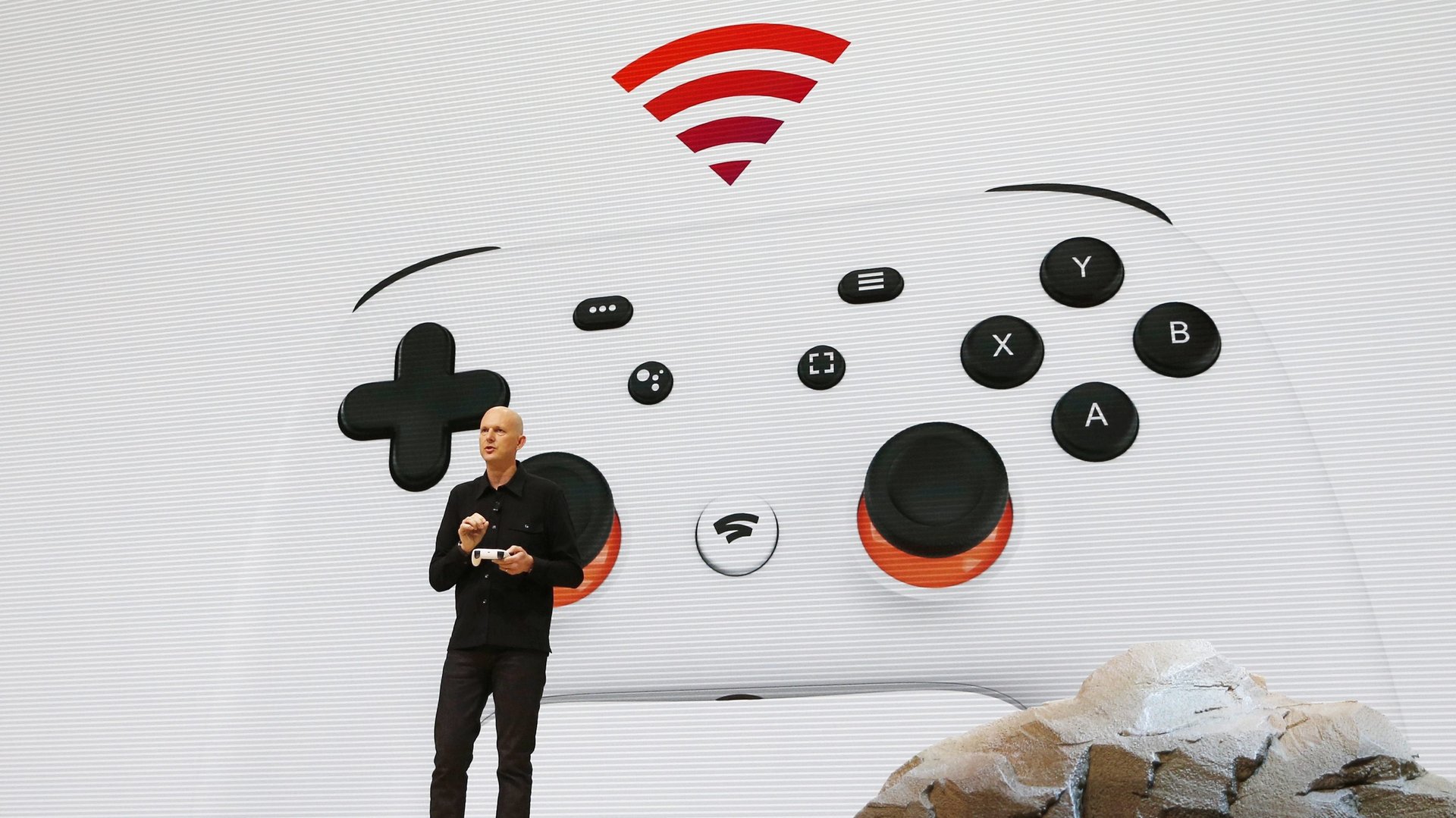Google Stadia is not the cloud gaming future we were promised
Google Stadia, the subscription-based streaming game service, launched Nov. 19, and it’s already off to a rough start. Early users reported lagging and syncing issues with the service. Video quality, which Stadia automatically adjusts based on your connection speed, would regularly drop down for some players to 720p, well below the 4K resolution the service is supposed to be able to handle.


Google Stadia, the subscription-based streaming game service, launched Nov. 19, and it’s already off to a rough start. Early users reported lagging and syncing issues with the service. Video quality, which Stadia automatically adjusts based on your connection speed, would regularly drop down for some players to 720p, well below the 4K resolution the service is supposed to be able to handle.
Stadia’s response has been to point users to its website. “Stadia is a new way to play games and we understand setup is a bit different than other platforms,” Google Stadia’s Patrick Seybold said in an email to Quartz. “We recommend consumers go to our help center for optimizing their connections to get the best gameplay experience.”
It’s possible some of the performance issues Stadia users ran into were from their own subpar internet speeds. But even players on high-speed internet services encountered problems, including latency—the time it takes between requesting an action to be performed in the game and it actually happening. The Washington Post’s Gene Park, who reviewed the console on a computer, a 4K television, and a Google Pixel smartphone, described “horrendous latency” and “buggy, quick” cuts while playing games on anything other than the Pixel. For each test, Park said his internet speeds were higher than Stadia’s recommended 35 Mbps. Forbes reported “periodic stuttering issues with massive resolution and frame drops” while hooked up to internet speeds that ranged between 200 and 350 Mbps.
Kenny Rosenblatt, president of the online game service Arkadium, told Quartz he believed that lagging will be a problem with cloud gaming services for a while. “There is a reason why all major e-sport tournaments are conducted on LANs rather than the open web,” Rosenblatt said. (LANs, or local-area networks, are computers that are physically connected to each other for the fastest possible communication between devices.)
Unlike traditional PC or console games, cloud-based games are streamed from a remote server, in much the same way users might stream music on Spotify or movies on Netflix. Except cloud-based games aren’t as simple as their music and movie counterparts: Video games are a two-way street, with players sending complex signals to the game, at the same time as information is coming back in the form of actions in the game. Even a delay as short as a fraction of a second can cause players to lose ground or misfire.
“Many factors can increase latency in game streaming, and what many people notice as latency is actually frames arriving at inconsistent intervals,” Benjy Boxer, a co-founder of the Parsec cloud gaming platform, told Quartz. “Conditions across the customer’s network and hardware along with the technology powering it have to be right for a great game streaming experience.”
Cloud gaming’s latency problem is hardly unique to Google. PC Gamer gave Nvidia’s game streaming service GeForce Now—released in beta earlier this year—a lukewarm review, stressing that it requires “ideal network conditions.” Many users of PlayStation Now, Sony’s game-streaming platform, still complain of issues with input lag on Reddit, roughly five years years after its launch.
Several warning signs foreshadowed Stadia’s less-than-perfect launch. Many pointed out that regular playing on the data-heavy service would easily exceed monthly broadband limits. Users congregated on the Stadia forum on Reddit to report missing game codes and consoles that still haven’t shipped. Google put many promised features on the back-burner, such as a fully wireless Stadia controller, multiplayer gaming, and State Share, which lets players share exact moments in a game with friends.
As it stands, Stadia is far from the cloud gaming future that gamers were promised. But it’s still early days. And players can expect even more cloud gaming options in 2020, when Microsoft is due to release xCloud, its Xbox-themed answer to Stadia.